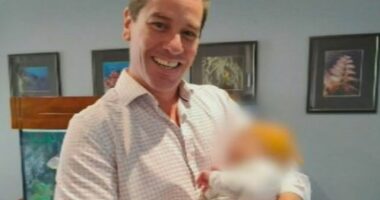Share this @internewscast.com
This quail meat in the butter didn’t originate from a farm; instead, it was manufactured in a facility located in Alexandria, about 20 minutes away from the restaurant.

Chef Mike McEnearney’s popular sourdough bread is now being served with cultured quail compound butter at a restaurant in Sydney. Source: SBS News
Cultured meat is the process of taking a small number of cells from an animal, in this case, a quail, and growing them in a controlled environment to eventually produce a type of meat product.
“I really like the innovative nature of it, and I think I’d be really happy to see it more on menus,” another patron, Benjamin Heenan, told SBS News.
Cultured meat: From cells to steak
This innovation is the creation of the Australian start-up Vow, which made history in June as the first company in Australia to gain permission to sell cultured meat.
“We extract live cells from animals and cultivate them in what I describe as a nutrient-rich broth. Ultimately, you can collect those cells,” she explained.

Vow’s CEO, Ellen Dinsmoor, said the company is not trying to replace regular meat, but is using unique ways to create new products. Source: SBS News
“Maybe imagine that if you’re making cheese and you are taking some of the whey off the top, that’s kind of what it looks like,” Dinsmoor said.
While the product only made its debut in Australia this month, it has been available in Singapore for the past year — the first country globally to approve the sale of cultured meat.
Why grow food in a factory?
But Wood said until the industry scales up significantly, it remains unclear whether it will be more sustainable than farming.
“It will use less land. It’s a factory. It’ll probably use less water. But we already know that on an energy basis, it’s unlikely to be more sustainable because it’s quite an energy-intensive process,” Wood said.
According to the United Nations Food and Agriculture Organization, agricultural production will need to increase by approximately 60 per cent to meet global food demand by 2050.

The animal cells are grown inside a large stainless steel tank in what Vow describes as a “nutrient-dense broth”. Credit: Supplied / Vow
Sam Perkins is the CEO of Cellular Agriculture Australia, a not-for-profit that aims to advance cellular agriculture, a process that utilises cells and innovative biotechnologies to produce new ingredients, food and agricultural products.
The technology is being harnessed to make everything from coffee to palm oil, leather and chocolate.
‘Frankenstein meat’
The Italian farm lobby has previously labelled cultured meat “Frankenstein meat”.












